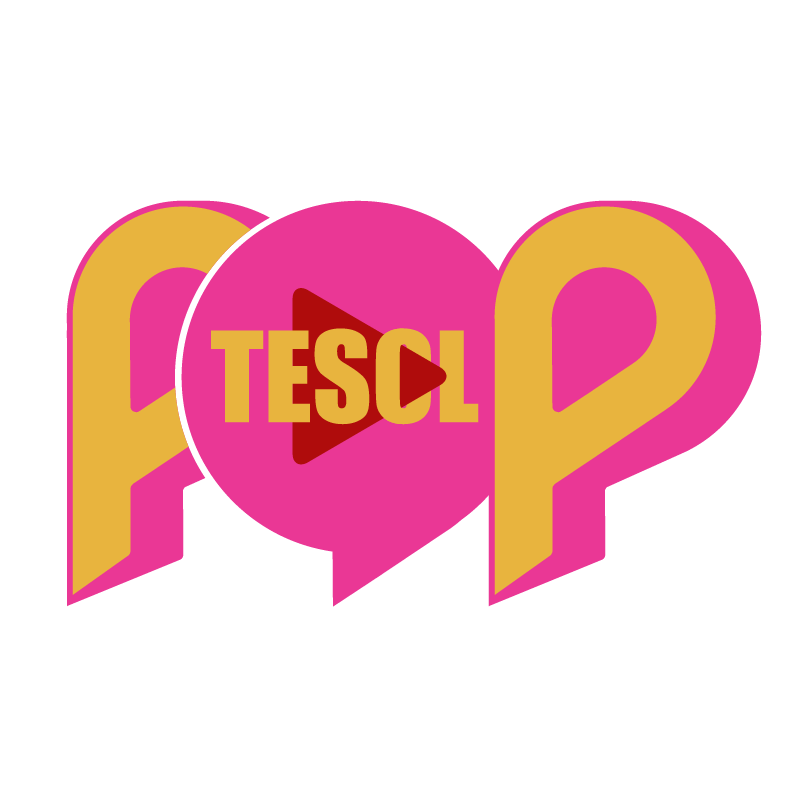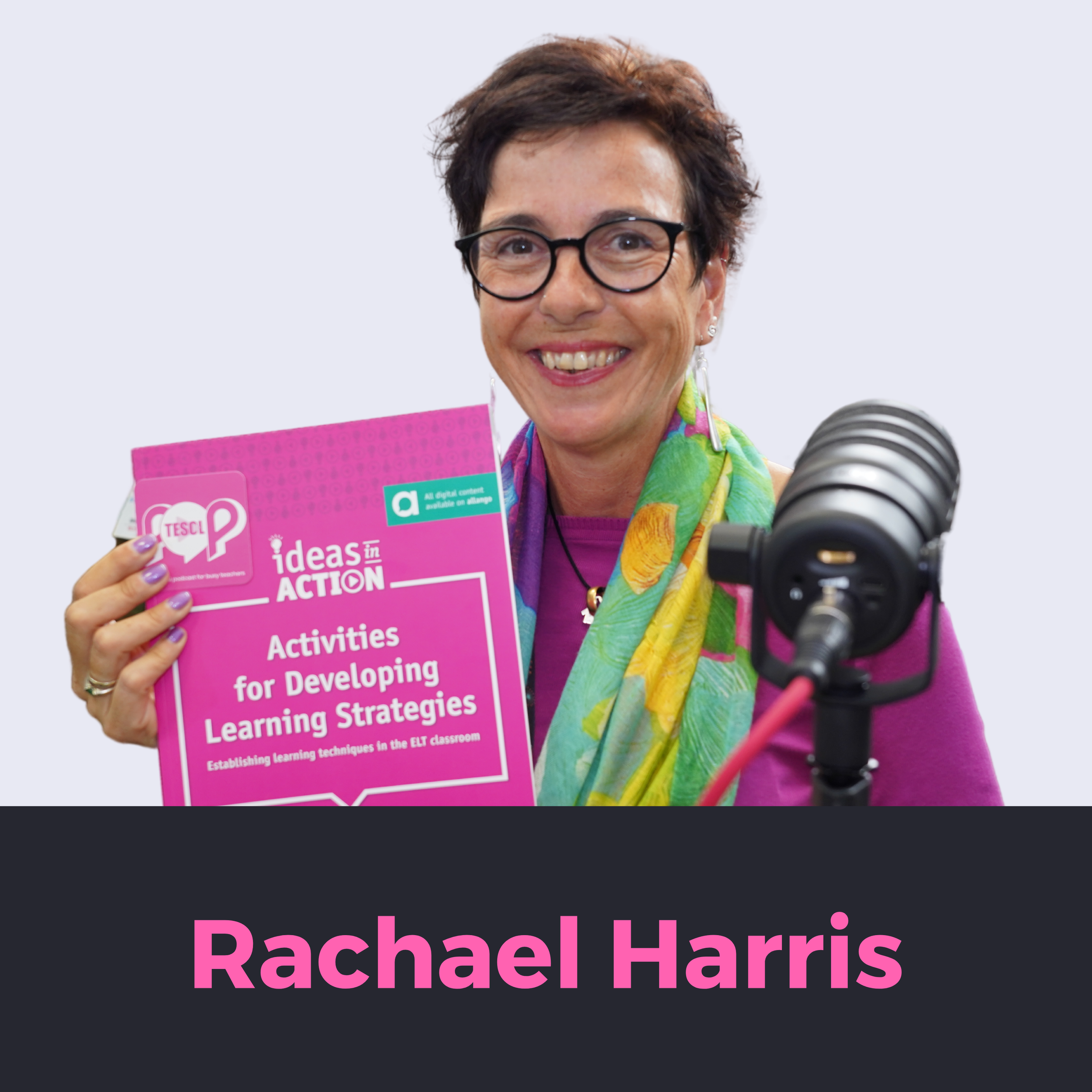S9E6: What is Task-Based Learning?
Author Jane Willis answers your questions about task-based learning (TBL). In this episode, Jane provides examples of TBL in practice, explores the difference between task-based and task-supported learning, and closes with suggestions on how the latest technology can fit into a TBL framework.
Key talking points
Defining Task-Based Learning
Jane simplifies TBL with practical examples, such as "describe and draw" tasks and planning school rules or travel itineraries. She emphasises the key features of TBL: having a purpose, goal, focus on meaning, and allowing freedom to use any language.
Common Misinterpretations of TBL
Jane clarifies the difference between task-supported learning, which integrates tasks within traditional methods, and task-based learning, which starts with and focuses on tasks. She explains the three-part task cycle—task performance, planning, and public reporting—and highlights the importance of planning to boost learner confidence and extend language use.
Integrating Technology with TBL
Jane discusses using technology, such as Zoom and other platforms, to record and review lessons and transcription software to analyse language use. She also talks about using AI tools like ChatGPT to enhance tasks, such as refining story prompts and generating dialogues.
Future of Education and TBL
Jane expresses excitement about the possibilities AI and technology bring to TBL, mentioning the ongoing experimentation and potential for innovative teaching methods while also stressing the importance of cautious and informed use of new technologies.
About Jane
Jane worked extensively overseas (Ghana, Cyprus, Iran, Singapore) as an English teacher and trainer. In the 1980s, she and her late husband, Dave, met Prabhu and began experimenting with Task-based Language Teaching, writing several prize-winning books. She also taught for 12 years on the TESOL Masters programs at Aston University in UK. Jane now lives in the English Lake District and enjoys fell-walking. She teaches tai chi and is still quite active on the TBLT scene. In 2022, she received the inaugural Distinguished Practitioner Award from the International Association of Task-based Language Teaching.
Visit Jane's website here to learn more.
References & Resources
Links will direct you to resources Jane mentions in this episode and more.
East, M. (2021). Foundational Principles of Task-Based Language Teaching. OPAPEN. Available here.
IATBLT. A bank of tasks for all levels are available here.
Task-Based Learning for All. A three-level course with recordings of tasks and transcripts.
Willis - ELT. Task-Based Lesson Plans are available here.
Willis, D. and Willis, J. (2007) Doing Task-based Teaching. OUP
Willis, D. (2003). Rules, Patterns and Words: Grammar and Lexis in English Language Teaching. Cambridge University Press (illustrates how to teach grammar through TBL)
Willis, J. (1996). A framework for task-based learning. Ebook edition 2012 Intrinsic publications available on Google Play and Rakuten Koko.
All hyperlinks listed were accessed on 28/05/2024.
Watch the video with closed captions or refer to the transcript below.
Transcript
00:00:00:02 - 00:00:30:02
Laura
TESOL Pop, season nine, episode six. Hello and welcome to TESOL Pop, the mini podcast for busy teachers. My name is Laura, and joining me today is a very special guest to talk about task-based learning (TBL). It is, of course, Jane Willis. Jane has worked extensively overseas in Ghana, Cyprus, Iran and Singapore as an English teacher and trainer. In the 1980s, she and her late husband Dave met Prabhu and began experimenting with task-based language learning, writing several prize-winning books.
00:00:30:08 - 00:00:35:02
Laura
Jane is absolutely delight, so she's delightful. Thanks so much for giving up your time.
00:00:35:04 - 00:00:37:11
Jane
It's a pleasure to be here.
00:00:37:13 - 00:00:53:05
Laura
You know, it was actually quite difficult to pick the questions to ask you because you spoke in so extensively and been so generous in talking on podcasts and interviews and stuff. So for this episode, I tend to the listeners to actually ask for the questions. So good idea. Yeah, I know, right? It takes the pressure off me, doesn't it?
00:00:53:07 - 00:01:02:03
Laura
So the first question we have about task-based learning is what's the simplest way to describe how people often make it complicated?
00:01:02:05 - 00:01:29:13
Jane
Yes. And I tend to give examples or show examples rather than try to explain. To start with for example, a describe and draw test, which is what probably they do. And he taught us how to use task-based learning for tasks like, what school rules would you like to have in your school?
00:01:29:14 - 00:01:58:23
Jane
Write a list of three school rules that you would like, you know, or plan a travel itinerary for the holidays. Yeah, something very specific, because all of those have a very obvious, definite purpose. You need to draw the object that's being described and you end up with a drawing. So there is something that is can be shared with everybody else that other people can hear or see or look at.
00:01:59:00 - 00:02:23:02
Jane
for the list. They can share that list with other people and see what things they've got. And then you can make another list for the whole class. So there's a there's a purpose and a goal. and so people are using English. The learners are using English for a purpose. They can use whatever language they like. It's totally free.
00:02:23:02 - 00:02:59:08
Jane
They're not trying to use a structure of or vocabulary. so there's a focus on that. So focus on using English meaning what they say a focus on meaning. And I think that's yeah, I think you need to demonstrate rather than try and explain so that you can identify a task if it has a purpose, a goal, if the focus is on meaning, you know, if they're free to use any language they want, and also if they know what the end product is going to look like, will be, like.
00:02:59:10 - 00:03:16:08
Laura
I said, wonderful, succinct example. And the fact that you mentioned leading with examples rather than than trying just to get into the definition of things, be just so easy for teachers listening to kind of draw. Now start drawing connections with like, oh, of course I do task based learning and parts of my life, I should just say write a nice.
00:03:16:08 - 00:03:23:18
Jane
But they probably realise that, you know, in playing spot the difference, you know, they are actually doing a task. Yeah.
00:03:23:20 - 00:03:39:16
Laura
A lot of people tend to get some things wrong about task-based learning. There may be some misinterpretations, maybe harking back to I have a complicated way. It may be explained rather than shown with the example you just gave. what do people tend to misinterpret or get wrong about TBL?
00:03:39:17 - 00:04:04:08
Jane
Oh well, one of them is that task-based learning is no good because it forgets about the grammar, and so anything goes. But that's easy. Too easy to rectify, I think. Yeah. So, the biggest misunderstanding today was the difference between task-supported learning and task-based learning. Because task-supported learning, you kind of do whatever you normally do.
00:04:04:08 - 00:04:34:12
Jane
You follow your textbook and then you put in a task. So they may have just done a lesson on the structures or grammar or something like that, and some feel when they're doing the task that maybe they need to practice that, but they're not totally free in that language use. Or they do a task, and then go back to the, you know, sort of teaching grammar in a PPP [Present-Practice-Produce] style.
00:04:34:14 - 00:05:19:19
Jane
so that would be task supported learning a task is used. Well, it's good, but it's not task-based. So a task based classroom would be where they start a lesson sequence or a teaching sequence with a task. And the task is the purpose of the lesson. so a task-based lesson would be it would involve scaffolding, introducing the task, explaining the topic, exploring the topic with the class teacher, teacher, talking to the class about the topic, maybe telling a personal story to introduce the type of task it's going to be or something says is a descriptive class describing something.
00:05:19:22 - 00:05:49:12
Jane
So like story brainstorming words and phrases that are useful because words and phrases are useful for getting meaning across and they grammar useful for fine tuning, but not at the beginning of them. It's words and phrases they need to get that communication, to achieve the communication they need. and then the task cycle itself is three parts.
00:05:49:14 - 00:06:22:19
Jane
So it's you do the task, the children or the learners maybe do the task. It can be a teacher, that task. Or it could be just the task and tunes or threes. But using whatever language they can. And then they're asked to share the results with the class. And teachers very often miss the share it miss. They go straight into can you tell it can you can you tell the class what you've done, what you found out?
00:06:22:21 - 00:06:31:09
Jane
And then there's always a bit of a silence. Some people kind of reluctant to put their hands up because it's very scary.
00:06:31:09 - 00:06:33:00
Laura
Yeah, it's very intimidating.
00:06:33:06 - 00:07:01:17
Jane
Yes. And maybe they're not confident it's too. So it's always the best speakers that do that. But if you put a planning stage in between the tasks that you have the task list, and then they know they're going to have to report to the whole class on, write it up. So if it's a written task, then they write it for display, for public use or make it maybe they make a recording which is more public.
00:07:01:22 - 00:07:22:01
Jane
So it's a bit scary. Yeah. They want to get it right. They don't want to make mistakes. So they're in the right frame of mind to actually and a planning stage. They plan in their twos or threes or whatever. The teacher can go around to the groups and help, and they can say, hey, can you come and check this?
00:07:22:01 - 00:07:43:01
Jane
Have you made any mistakes? Or the teacher could say, well, maybe there's some more adjectives you can put, you know, you can try a bit harder here. You can I do any other words for this. Have a look in your dictionary. So push them, extend their language and then when they actually come to do the public reporting, the sharing of their results, they feel good.
00:07:43:03 - 00:07:57:21
Jane
Because think latch on this together and feel secure. And then you can rotate the role of spokesperson and writing, you know. Right. And so on. So everybody gets a go at speaking in public, a go at writing for a public audience.
00:07:57:23 - 00:08:05:19
Laura
That's brilliant. I think we really clarified there the difference between task-based learning and demonstrated how it what it would look like. Yeah. Stage by stage.
00:08:05:21 - 00:08:09:16
Jane
Yeah, so it’s a three-part task cycle. And that's what people tend to forget.
00:08:09:22 - 00:08:33:06
Laura
So over the past few years we've witnessed obviously radical changes in technology. Obviously, AI is a big topic here today at IATEFL (2024) in Brighton. And the next question related to this is, you know, how does this approach of task-based learning blend with these new technological developments that we're seeing? What are your thoughts on this?
00:08:33:06 - 00:09:09:11
Jane
Okay, well, my thoughts are more how can they how can the technologies blend the task based learning? Oh yeah. During Covid we all use Zoom platforms. Yeah. And Zoom is amazing because they can record. And so the learner who is…if it's a one-to-one learner, the teacher can record the lessons with the learner can do a little presentation, sound on whatever task the teacher session they present, and then the teacher will, well, maybe, you know, reformulate what the learner has said.
00:09:09:13 - 00:09:46:18
Jane
It's all being recorded. the learner can then listen to that recording. Yeah. So that's any platform which enables recording easily in schools. There are ways, and I, I can't remember what it's called now, where you can record and also you can get a transcript of the recording. Yes. so that is a really good thing because the learner can look at what they said, and they can look at what the teacher says and, and him in the interaction.
00:09:46:20 - 00:10:28:20
Jane
And they can learn from that. So, and even just, I mean, this is one little task to tweak the instructions to tweak the prompts if you're going to do a search on AI. So if the students want to find out about what, I said about people from their country, you know, what are the characteristics, I think and the example we were given today was the characteristics of, people in Lebanon, you know, what are the Lebanese known for?
00:10:28:22 - 00:11:01:07
Jane
so it took a long time to tweak the prompts to get five characteristics of people in Lebanon. and it took a quite a long time. So actually tweaking approach. So if the children are writing a story and they want AI to finish the story, then they need to think, how can I from the start changing and then changing the prompts and seeing what the results produce.
00:11:01:07 - 00:11:17:12
Jane
So if the class do is changing the prompts in pairs, and then they each put their prompts in and they'll get different things and then they can repair, then they can compare the different and story endings. That would be a wonderful task.
00:11:17:14 - 00:11:26:08
Laura
And this could be done using when you say prompts in generative AI, we're talking about ChatGPT or Google's Gemini that, freely available at the moment.
00:11:26:08 - 00:11:48:18
Jane
Anything that will do that I mean, is something like that was done, on ChatGPT quite recently and, yeah, but it can be made. It is a task in itself to actually get the to produce the, the writing or the sheet or the conversation or the dialogues that they want to produce. Now, I'm gonna.
00:11:48:18 - 00:11:59:22
Laura
Doing it that way is like task-based learning, a working process that you just described there, like refining things and working on the prompt, maybe discussing it together as a team. Yeah.
00:12:00:03 - 00:12:09:16
Jane
You know, and then they don't all do the same one. So then they get they generate different texts or different dialogues and they can be somewhere that's brilliant.
00:12:09:16 - 00:12:26:23
Laura
And it's a varied examples, an example of that of recording using recording software so students can review that together. You've given the example of transcription software where students can analyse what was said, even editing has been recorded into other videos or even using generative AI. You've covered a whole range that.
00:12:26:23 - 00:12:30:01
Jane
That was in the transcription. You can get the grammar.
00:12:30:03 - 00:12:30:22
Laura
Yes.
00:12:30:22 - 00:12:45:06
Jane
You can actually get the student to focus on whatever grammatical structures they need. But whatever lexical phrases, whatever chunks are useful for speaking, so you can do it, then you can do a form-focused exercise on the AI-generated language.
00:12:45:11 - 00:12:52:08
Laura
So, Jane, where I stay in Brighton, there are lots of ideas buzzing around. What's one thing you're really excited about about the future of education?
00:12:52:10 - 00:13:19:08
Jane
Well, I think the possibilities that emerge from AI and ChatGPT are so many things you can do with that in the classroom on a one-to-one basis. I don't know where it's going, but there's a lot of experimentation going on now. I've been to some wonderful sessions here, I suppose, and there are lots of people experimenting.
00:13:19:10 - 00:13:28:04
Jane
there are lots of things that we need to be cautious about as well. so, yeah, I think that's the most exciting thing.
00:13:28:06 - 00:13:31:23
Laura
Me too. Jane, it's been so lovely talking to you. Thank you so much for your time.
00:13:32:00 - 00:13:34:03
Jane
Well, it's been lovely talking to you.
00:13:34:05 - 00:13:53:23
Laura
To find out more about Jane's work, you can go to her website, where she also has example lesson plans on task-based learning in action, which I recommend you go and check out all the links to all of the publications there in the show. Notes now, so you can find those easily. Now, if you have a question that you'd like us to answer or an idea that you'd like to pitch, you can contact us on the social media platforms or our website TESOL Pop.com
00:13:54:00 - 00:14:10:17
Laura
Finally, you can support the work we do at TESOL Pop by leaving a rating review so other teachers can discover us., by sharing today's episode with your teaching community to continue the conversation, or by even buying Haven and I a coffee by going to ko-fi.com/tesolpop
You might also like
Good to know
This blog space and its associated multimedia content contain affiliate links. To learn more about how affiliate links work, please read our disclaimer here.





Founder of the Learning Cosmos André Hedlund explores the growing challenges of maintaining attention spans in the age of digital distractions. André dives into the impact of screen time, executive functions' role in learning, and how going back to basics can foster focus and resilience in our classrooms.